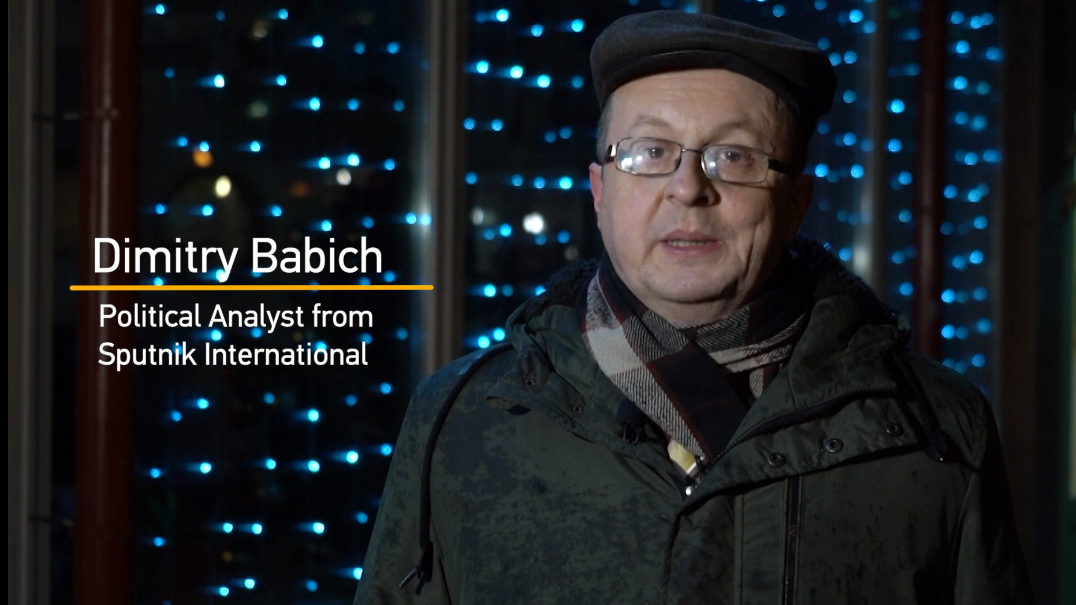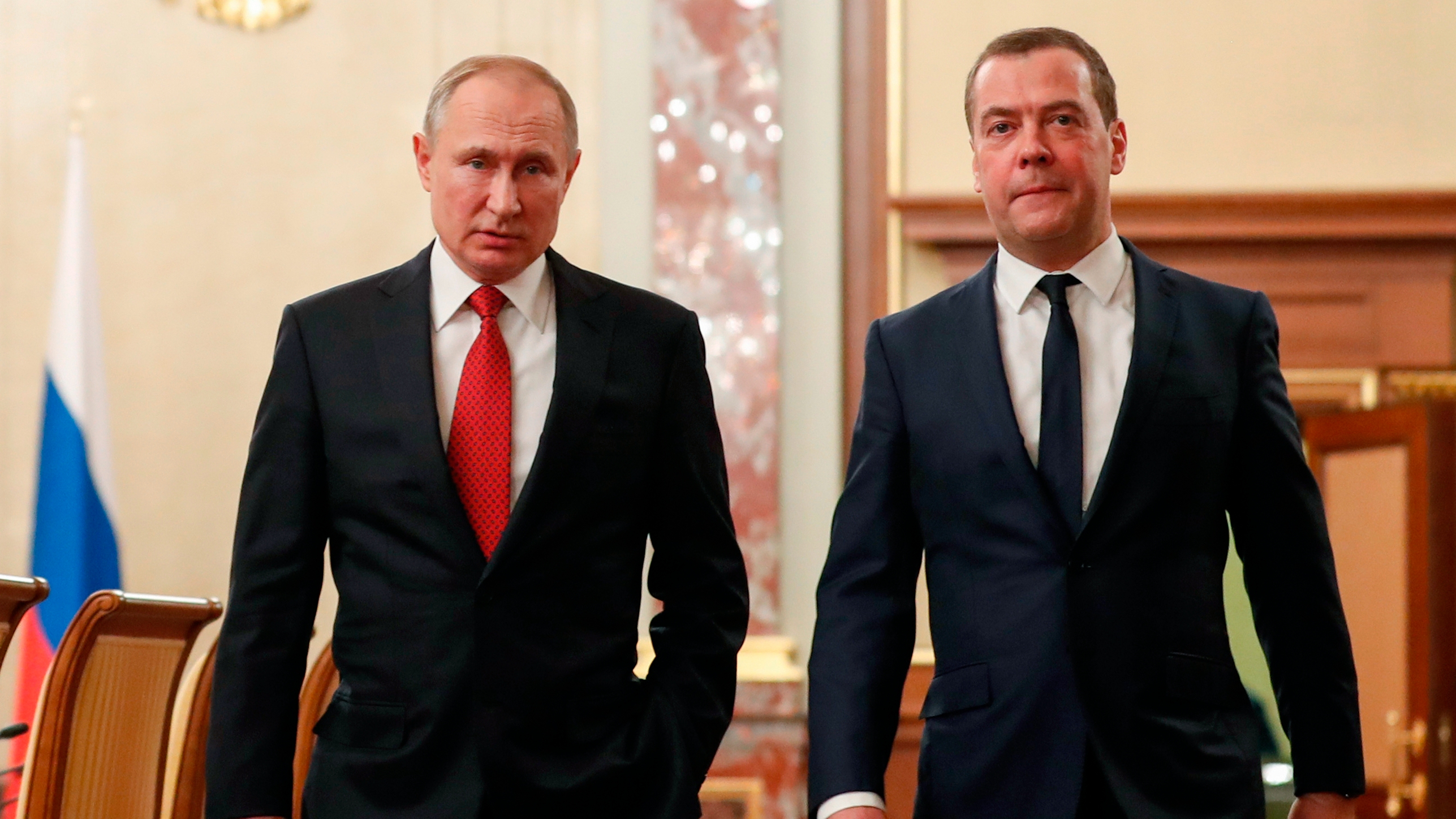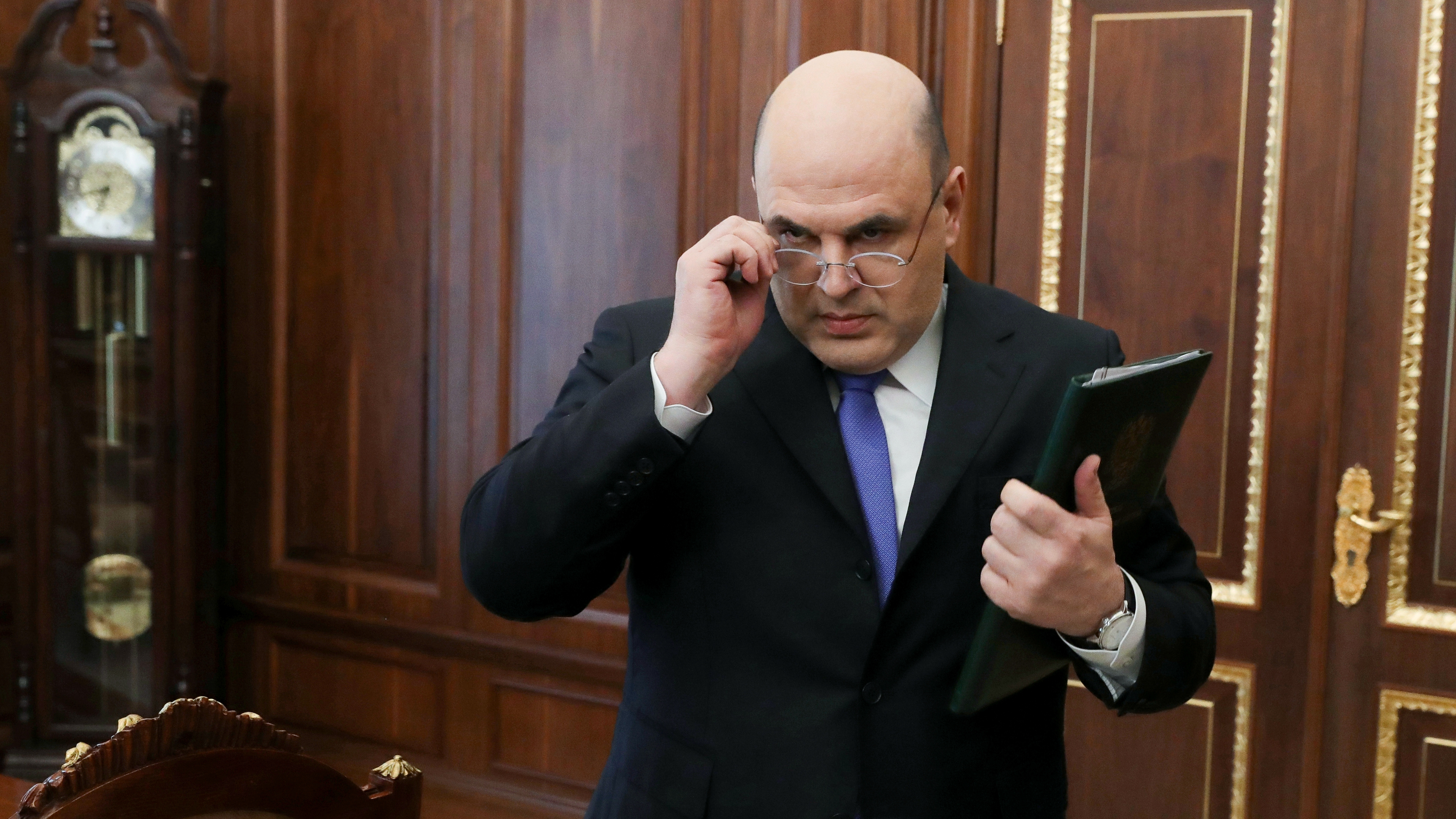President Vladimir Putin has announced plans to significantly shift the balance of power in the Russian political system.
In a shock move on Wednesday, Prime Minister Dmitry Medvedev resigned along with the rest of the government and Putin outlined sweeping proposals for constitutional reform that will be put to a referendum.
What lies behind Wednesday's dramatic developments in Moscow?
What is Putin proposing?
Putin, who is due to step down as president in 2024, used his annual state of the nation address to propose constitutional reforms that would shift power away from the presidency.
The 67-year-old called for a strengthened parliament, including the power to select the prime minister and senior cabinet members, as well as increased power for the prime minister.
The State Council, currently an advisory body, would also enjoy expanded power under the proposed reforms and residency requirements for presidential candidates and other top officials would be tightened.
03:41

Dmitry Babich, a political analyst with Sputnik International, told CGTN that the proposals, which would be the first major changes to the Constitution since 1993, followed a trend towards "strengthening Russia's sovereignty."
"People accept that today when Russia is under pressure from Western countries we need a new government, where not a single member of the government would have dual citizenship," he said.
"So the trend is towards more sovereignty, more respect for Russia as a sovereign nation, and that is going to be welcomed by the people, I'm pretty sure about that."
Why did Medvedev quit?
Medvedev, the prime minister and former president, announced his resignation while sitting alongside Putin at a televised news conference.
"These amendments, when they are adopted, will make significant changes not only to a number of articles of the constitution, but also to the balance of power," he said. "In this context, it is obvious that we, as the government, should provide the president of our country with the ability to make all the necessary decisions for this."
It was unclear precisely why the government needed to resign now to facilitate the changes.

Russian President Vladimir Putin and outgoing Prime Minister Dmitry Medvedev in Moscow, Russia, January 15, 2020. /AP Photo
Russian President Vladimir Putin and outgoing Prime Minister Dmitry Medvedev in Moscow, Russia, January 15, 2020. /AP Photo
Some analysts have suggested Medvedev may have disagreed with the planned reforms, but Babich argued the resignation was not a surprise given the 54-year-old's recent unpopularity. The former president had become a "burden on Putin," Babich said, adding that many Russians had expected Medvedev to go after the last presidential election.
"At the time Putin got 76 percent of the votes and the rumors were rife that Putin would sack the government of Dmitry Medvedev, which is seen by the population as too liberal, too pro-Western, not caring enough about the real problems of the poorest tranche of the population."
What happens next?
Medvedev is to be replaced by Mikhail Mishustin, a 53-year-old technocrat who has headed Russia's tax service for the past decade. The outgoing prime minister is to be appointed as deputy head of the Security Council, which is chaired by Putin.
"Putin as usual was loyal and lenient to his friend – Medvedev is his friend, Putin doesn't hide it," Babich said, adding that the outgoing prime minister had maintained financial and macro-economic stability during his spell in power since 2012.
"All-in-all Medvedev was not excellent, but he was pretty successful. He kept Russia afloat, and this is what Putin has thanked him for today."

Russian Tax Service chief Mikhail Mishustin prepares for his meeting with Russian President Vladimir Putin in the Kremlin in Moscow, Russia, May 6, 2019. /AP Photo
Russian Tax Service chief Mikhail Mishustin prepares for his meeting with Russian President Vladimir Putin in the Kremlin in Moscow, Russia, May 6, 2019. /AP Photo
Other ministers will remain in post until successors are named.
Putin didn't say when a national vote on the proposed constitutional reforms would take place, but parliamentary elections scheduled for September could be a key staging post.
Russia last conducted a referendum in 1993, when it adopted the Constitution.